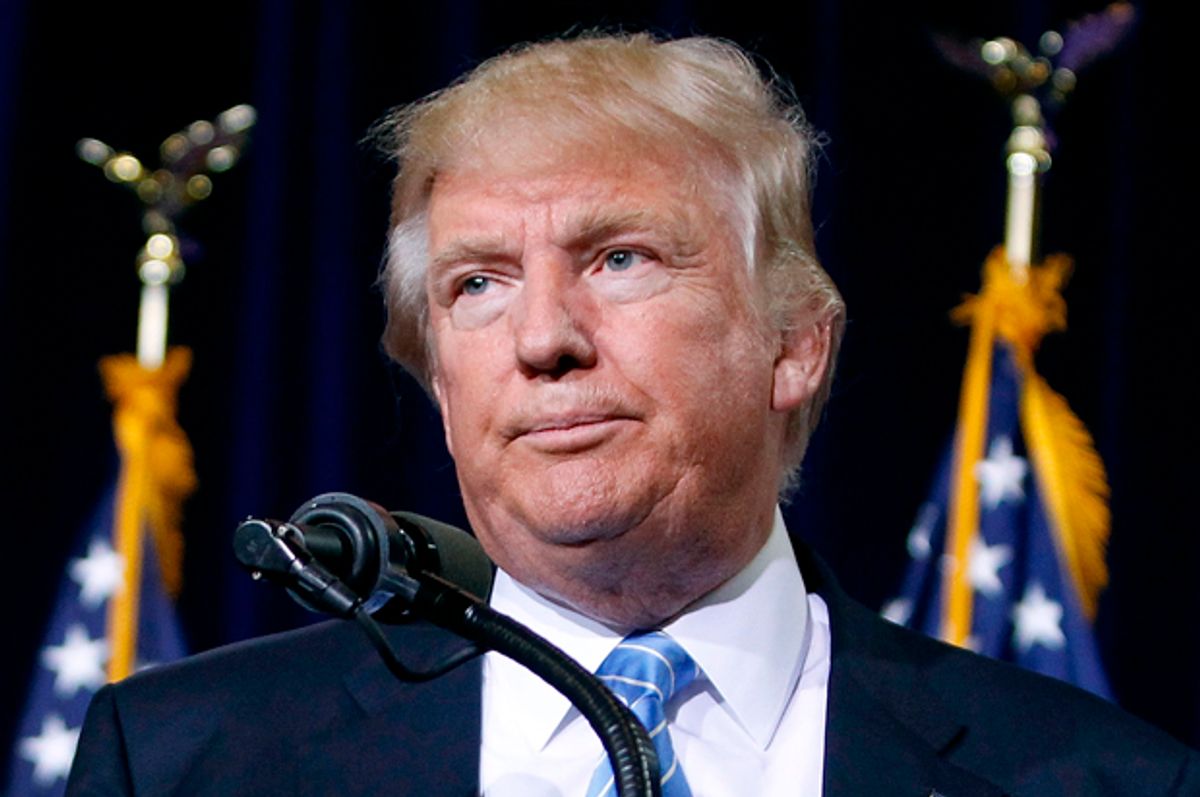Politico's “Political Caucus” is one of my favorite destinations for 2016 political coverage. It’s a running series of weekly interviews with a fixed roster of political “insiders” who offer their allegedly unguarded takes on the 2016 election from behind the protective shield of anonymity. I love it because, despite the promise of juicy details from behind the curtain, reading it will teach you nothing about the way politics works or how the presidential campaigns are doing. The Political Caucus does, however, stands a stark and unassailable case that people identified as political “insiders” are utterly useless.
As I wrote in February, the Republican “insiders” who participate in Politico’s caucus spent months and months confidently (and wrongly) predicting that Donald Trump’s collapse was imminent. And even after Trump finished second in Iowa and blew away the field in New Hampshire, the “insiders” were still singing that same tune, despite the fact that Trump was only getting stronger with each passing day. These people who were supposed to have the inside track on Republican politics were completely wrong, and they stayed wrong for weeks on end because they wouldn’t allow the reality of what was happening intrude on their preferred understanding of how the party worked.
Now that Trump has been installed as the nominee, a different flavor of uselessness has emerged from the "insiders" in the Political Caucus. Instead of standing stubbornly behind incorrect takes on the status of the race, Politico’s Republican “insiders” are now just lurching wildly from one news cycle to the next, allowing the rapidly shifting conventional wisdom stand in for their assessment of the Trump campaign.
Let’s take a look at the last several weeks of GOP Political Caucus takes on Trump, stretching back to just before the Republican National Convention:
July 18: “GOP insiders dreading Trump's convention.” Per Politico, its gaggle of Republican insiders “are dreading the Republican convention in Cleveland this week,” and “numerous insiders compared the convention to a train wreck or car accident.”
July 22: “GOP insiders: Trump nailed it.” Just four days after the “insiders” fretted that the Republican National Convention would be a grisly automotive accident of some variety, Trump’s speech accepting the nomination drew “accolades from a number of GOP political insiders who had doubted his competence to lead the Republican ticket this fall.”
Aug. 5: “Insiders to Trump: Drop out.” Two weeks after celebrating Donald Trump’s surprisingly effective and competent performance at the RNC, the insiders wanted him to withdraw expeditiously from the presidential race. At the time Trump’s poll numbers were cratering as he fought with a Gold Star family and refused to play nice with Republican leaders.
Aug. 19: “GOP insiders: Trump’s overhaul won’t succeed.” Trump’s response to the post-convention collapse was to bring in new top staff and implement a reset of his campaign. The insiders, however, remained convinced that it was too late to do anything: “Donald Trump says this week’s dramatic campaign overhaul will put his presidential bid on the right path, but GOP leaders in key battleground states aren’t buying it.”
Aug. 26: “GOP insiders: Moderating on immigration helps Trump.” A week after the “insiders” agreed it was too late to right the Trump ship and three weeks after they counseled him to get out of the race all together, Politico found that “nearly two-thirds of Republican insiders in battleground states think a more moderate stance [on immigration] would help the GOP nominee win the presidency.”
Sept. 2: “GOP insiders: Trump's trip was a hit.” A week after insisting that immigration moderation will help Trump win the race (which they once had argued he should abandon), the GOP “insiders” found that Trump’s trip to Mexico and decidedly un-moderate speech on immigration were “hugely or moderately successful, despite the potential contradiction between the two events.”
Again, these are the people who are supposed to have a special understanding of politics in general and their party specifically. They’re the “insiders.” But their analysis seems incapable of taking into account anything that happened more than a few days prior. It’s like Politico's "insiders" just wake up and watch “Morning Joe” and let that experience dictate how they’ll view the political world that day.
Actually, now that I think about it, that’s probably exactly what happens.



Shares